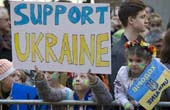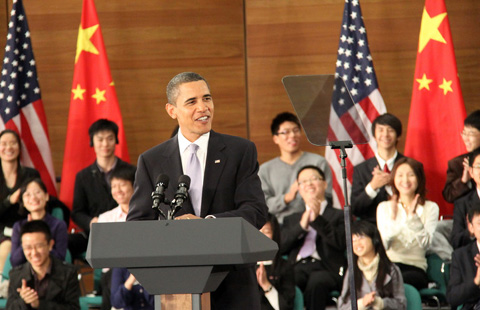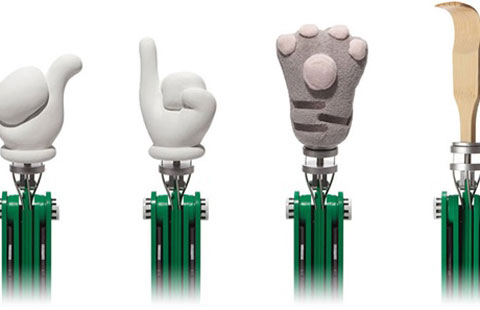Overseas payment to Iran 'to be freed'
By Reuters In Vienna and Dubai (China Daily) Updated: 2014-04-17 07:14
Fifth installment signals Teheran's compliance with nuclear accord
Iran expects to get a fifth installment this week of previously blocked overseas funds, a senior official was quoted as saying, a payment that would confirm Teheran's compliance with an interim deal with world powers to curb its nuclear program.
Separately, Iranian President Hassan Rouhani said "tough issues" faced the country and the six major powers in negotiating a permanent accord to resolve the decade-old nuclear dispute but that it was still possible by a late July deadline.
"If it (the negotiation process) goes on with the same trend, the final agreement could be reached within six months," Rouhani, seen as a pragmatist, was quoted by news agency Tasnim as saying at a meeting in a southeastern province late on Tuesday.
Rouhani, whose election last year paved the way for a major thaw in ties with the West, was apparently referring to the goal of hammering out a long-term settlement before the six-month deal struck late last year expires on July 20.
"This means removal of sanctions and restoring financial relations with the rest of the world," he said, making clear Iran's aim to have sanctions that limit oil exports and make financial transactions difficult lifted as soon as possible.
Diplomats and experts say it will be difficult, but not impossible, to resolve the standoff over nuclear activities which Iran says are peaceful but the West fears may be aimed at developing nuclear weapons capability.
Western states want Iran to significantly scale back its nuclear program to make sure it cannot quickly make an atomic bomb. Iran has ruled out shutting any nuclear facilities.
Under the preliminary agreement that took effect on Jan 20, Iran will receive a total of $4.2 billion of blocked funds in eight payments over six months, if it lives up to its part of the deal designed to allay fears about its atomic aims.
It says it has already received four transfers in February and March, totaling some $2.1 billion. A fifth payment of $450 million was due on April 15, contingent on Iran having diluted half of its most sensitive stockpile of nuclear materials. Diplomats say Iran is meeting its commitments under the accord.
Deputy Foreign Minister Majid Takht-Ravanchi, a senior member of Iran's nuclear negotiating team, told the official IRNA news agency on Tuesday that the latest installment "was to be freed today".
"We must look and see if it has been done. But it usually takes time for wire transfers to be completed," Takht-Ravanchi said, noting that Iran's central bank had no problems in accessing released funds.
The United States has estimated that Iran has a total of around $100 billion in foreign exchange assets abroad, most of which were not covered by last year's nuclear agreement.
The head of the UN nuclear agency, Yukiya Amano, said last week that the preliminary nuclear deal between Iran and the powers - the United States, France, Russia, Germany, China and Britain - was being implemented as planned.
The International Atomic Energy Agency, which has inspectors on the ground in Iran, issues monthly updates on whether Iran is complying with the deal. The next report is expected this week.
Under the Nov 24 agreement, Iran agreed to halt its higher-grade uranium enrichment work and to dilute and convert its stockpile of enriched uranium to a fissile purity of 20 percent.
Enriched uranium can be used to power nuclear power plants, Iran's stated goal, but also provide material for bombs if refined to a high degree, which the West fears may be the country's ultimate ambition. Iran denies those suspicions.
The interim agreement was designed to buy time for Iran and the powers to negotiate a permanent deal. Talks got under way in February and the next meeting is due in Vienna on May 13, when the two sides say they will start drafting an agreement.
- A look inside Bill Gates' 35 million home
- Cats exhibition held in Minsk
- Obama welcomes Xi with nihao at elaborate White House ceremony
- EU and China agree to cooperate on anti-terrorism agenda
- Offices of world leaders
- Mobike touts bike-sharing scheme in LatAm
- 1 killed, 20,000 evacuated by wildfires in Northern California
- Popular Chinese dishes in the US










